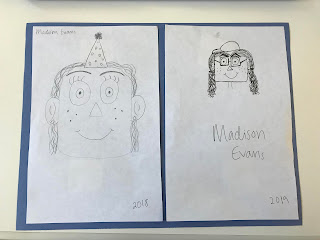Post-Mock Interview Reflection
1. How do you feel the interview went overall? I believe that, overall, my interview went very well. After watching my video, I seemed way more confident than I felt like I was internally. I was able to think quickly on my feet when the interviewer asked questions that caught me off guard or ones that were difficult to answer. I also think I did a great job articulating the message I was trying to communicate and remained calm but professional throughout the entire interview. There were times where I would stumble over my words and struggle to bring my answer back around to what the question was asking. I think this was due to my brain working faster than my mouth could, so I think I can definitely work on slowing down the pace of my talking in future interviews. 2. How did you prepare for the interview? I prepared for this mock interview by viewing the websites that Dr. Lancaster posted, listing some of the common questions from those links, and then brainstorming what I would ans
